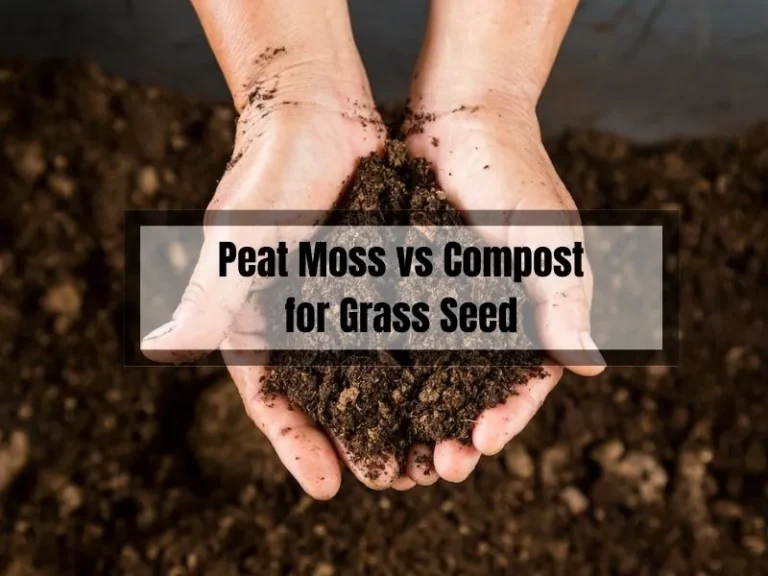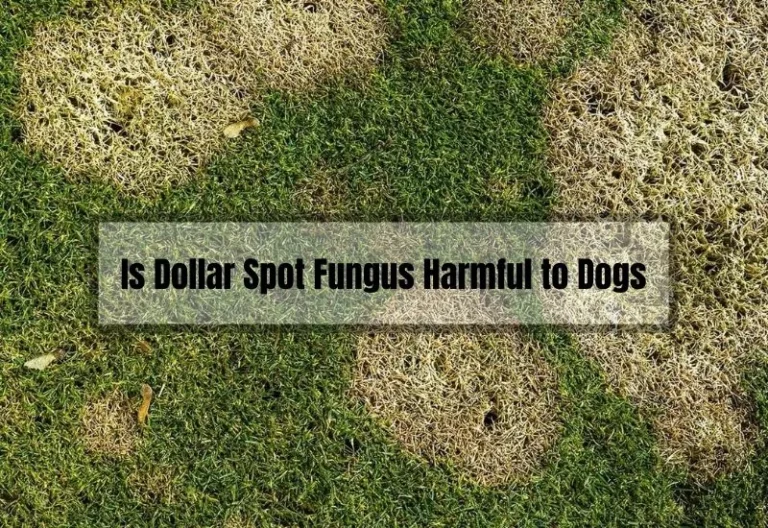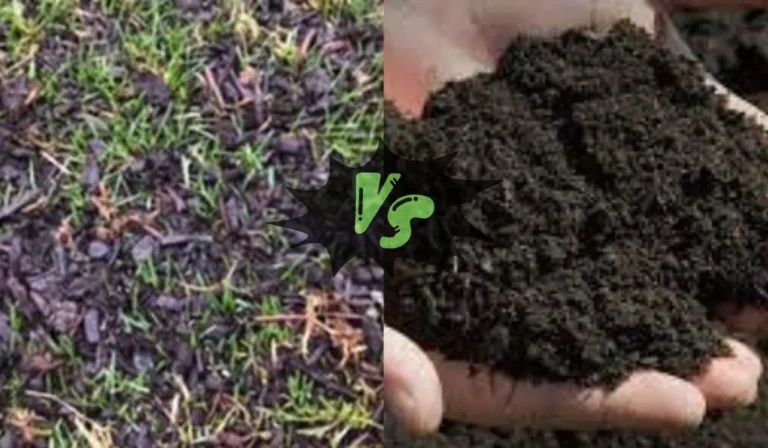Does Cayenne Pepper Kill Grass? A Natural Solution to Lawn Maintenance
Cayenne pepper is a popular spice known for its heat and flavor. It has been used for centuries in cooking and medicine, and has gained popularity in recent years for its potential benefits in pest control. However, some people are concerned about the effects of cayenne pepper on plants, particularly grass.
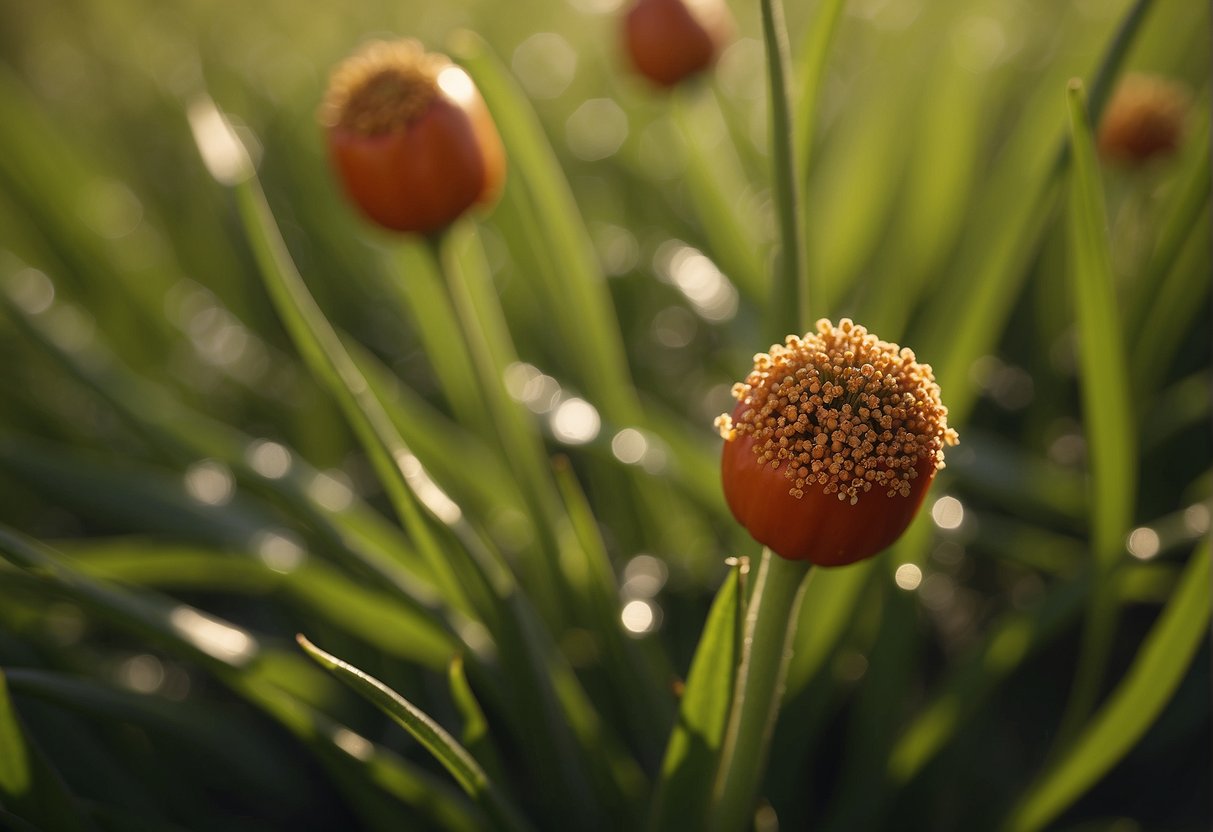
While cayenne pepper is generally safe for plants, there are some factors to consider when using it as a pest control method. Understanding the effects of cayenne pepper on plants and how to properly apply it can help gardeners make informed decisions about its use.
Key Takeaways
- Cayenne pepper can be used as a pest control method for grass, but it should be applied carefully to avoid damaging the plants.
- Mixing cayenne pepper with water and dish soap can increase its effectiveness as a weed killer.
- There are alternative methods for weed control that may be more effective and less harmful to the environment.
Understanding Cayenne Pepper and Its Effects on Plants
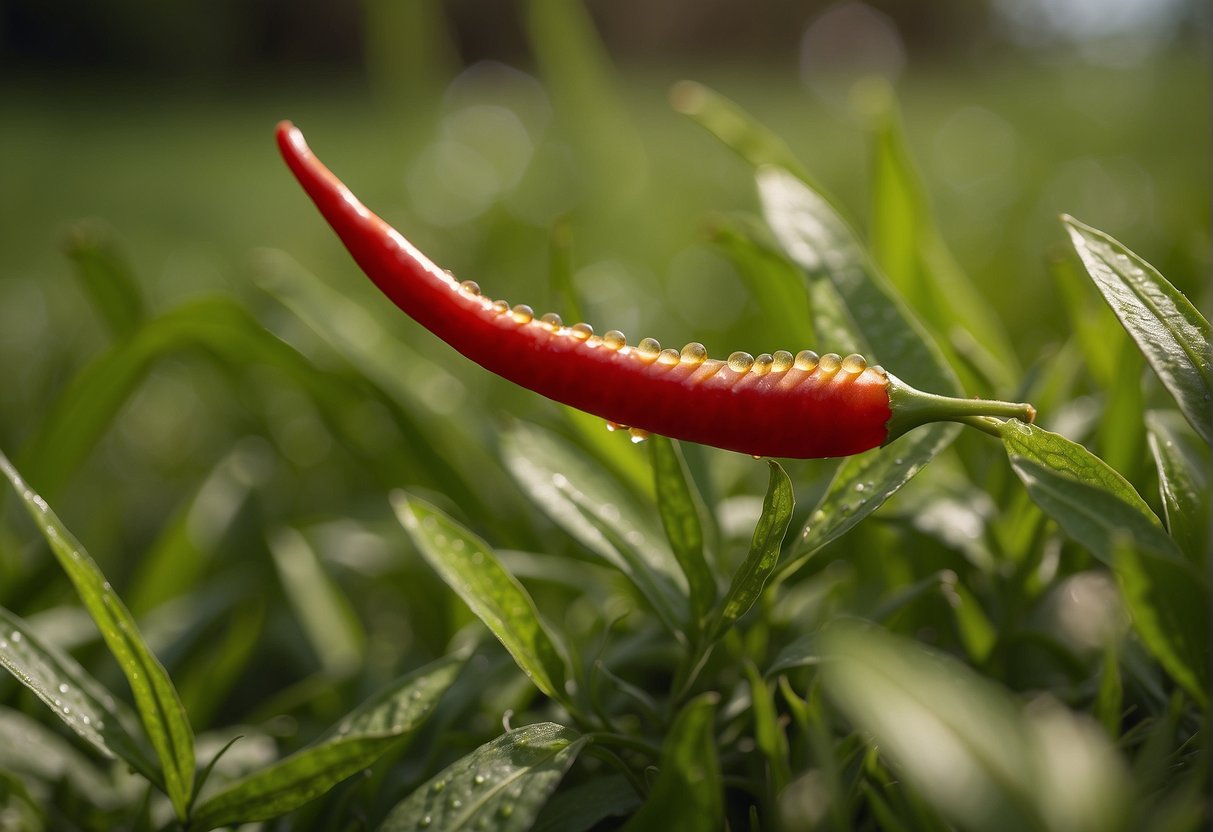
Cayenne pepper is a popular spice that is used in many recipes to add a spicy kick. However, it is also known to have insecticidal properties that can be beneficial to plants. When applied around plants or used in sprays, cayenne pepper can help protect them from being nibbled on or attacked by insects, squirrels, rabbits, or deer.
It is important to note that while cayenne pepper is generally safe for plants, it can be harmful if used in excess. In high doses, cayenne pepper can burn your plants, especially if they are young or delicate. Therefore, it is important to use cayenne pepper sparingly and to always water your plants thoroughly after applying it.
One way to use cayenne pepper on plants is by making a spray. To make a cayenne pepper spray, mix 1 tablespoon of cayenne pepper powder with 1 quart of water and a few drops of dish soap. This mixture can then be sprayed on plants to repel insects and other pests. It is important to strain the mixture before spraying it to avoid clogging the spray nozzle.
Overall, cayenne pepper can be a useful tool in protecting plants from pests. However, it is important to use it in moderation and to take the necessary precautions to avoid harming your plants.
Does Cayenne Pepper Kill Grass?
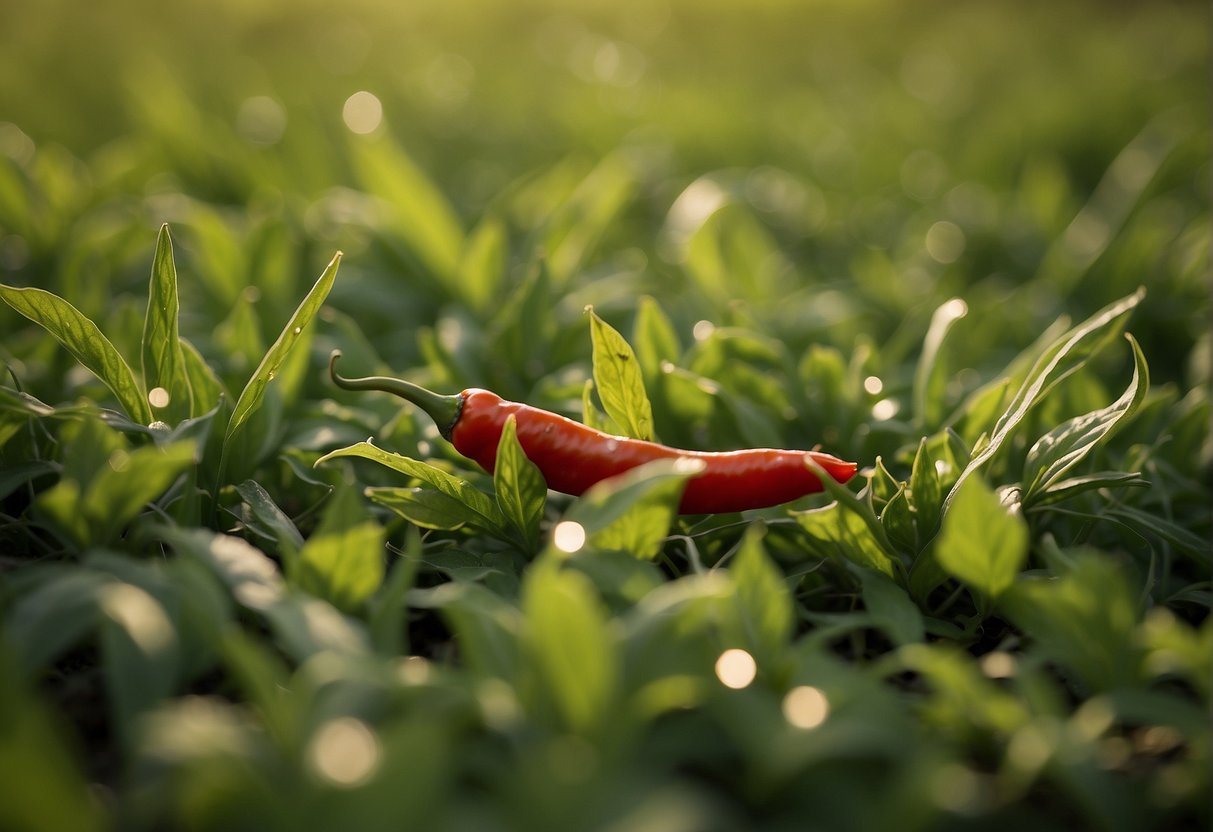
Chemical Composition of Cayenne Pepper
Cayenne pepper is a popular spice derived from dried and ground red chili peppers. It contains capsaicin, which is responsible for its hot and spicy flavor. Capsaicin is a naturally occurring compound that belongs to the family of capsaicinoids. It is widely used in insecticides, repellents, and animal deterrents due to its pungent smell and taste.
Mechanism of Action on Grass
Contrary to popular belief, cayenne pepper does not kill grass. The capsaicin in cayenne pepper is undetectable to other plants and will not cause any harm. Applying cayenne pepper to your lawn in a reasonable dose is no more harmful than sprinkling a handful of parsley on it. This substance only affects people and most animals, not plants.
Factors Influencing the Effectiveness
The effectiveness of cayenne pepper as a grass repellent depends on several factors, including the dilution rate, frequency of application, and weather conditions. Applying cayenne pepper in a higher concentration can lead to burning of the grass, while applying in a lower concentration may not be effective in repelling pests.
Additionally, frequent application of cayenne pepper may lead to the development of a tolerance by pests. Therefore, it is recommended to use cayenne pepper in moderation and in combination with other natural repellents for best results.
Application of Cayenne Pepper in the Garden
Cayenne pepper is a natural and effective way to keep pests away from the garden. It is a safe alternative to chemical pesticides and herbicides that can harm the environment and beneficial insects. There are different methods of applying cayenne pepper in the garden, each with its own benefits and drawbacks.
Methods of Application
One of the most common methods of applying cayenne pepper in the garden is by making a spray. To make a spray, mix one tablespoon of cayenne pepper powder or 1/4 cup of granules with one gallon of water in a spray bottle. Shake the bottle well to ensure the cayenne pepper is evenly distributed. Spray the solution onto the areas where you want to keep pests away. Make sure to cover the entire area evenly. This method is effective for repelling pests like squirrels, rabbits, and deer.
Another method of applying cayenne pepper is by sprinkling it on the ground around the grass or weeds you want to kill. This method is effective for clearing large areas of grass or weeds.
Sprinkle cayenne pepper on the ground around the grass or weeds you want to kill. The capsaicin in the peppers will kill the roots of the grass and kill off any future growth. This method is not recommended for areas with composting organisms.
Precautions and Best Practices
While cayenne pepper is safe for most plants and animals, it is important to take precautions when using it in the garden. Always wear gloves and a mask when handling cayenne pepper to avoid skin and eye irritation. It is also important to keep cayenne pepper away from children and pets, as it can be harmful if ingested.
In addition, it is important to use cayenne pepper in moderation. Heavy doses of cayenne can burn grass, but small amounts are harmless. Apply sparingly. Cayenne pepper adds healthy nutrients like nitrogen and potassium to the soil, feeding your grass. The spicy scent drives away pests but doesn’t damage the grass itself.
Alternatives to Cayenne Pepper for Weed Control
Natural Alternatives
If you’re looking for a natural alternative to cayenne pepper for weed control, there are a few options available. One of the most effective is vinegar. Vinegar is a natural herbicide that can kill weeds without harming your grass or other plants. Simply mix equal parts vinegar and water in a spray bottle and apply it directly to the weeds.
Another natural alternative is boiling water. Boiling water can kill weeds by destroying their roots. Simply boil a pot of water and pour it directly onto the weeds. Be careful not to pour the water onto your grass or other plants, as it can also harm them.
Commercial Herbicides
If natural alternatives don’t work for you, there are several commercial herbicides available that can effectively kill weeds without harming your grass. Glyphosate is one of the most popular herbicides and is effective at killing most weeds. However, it’s important to follow the instructions carefully and avoid getting it on your grass or other plants.
Another effective herbicide is 2,4-D. This herbicide is selective, meaning it only targets broadleaf weeds and won’t harm your grass. It’s important to follow the instructions carefully and avoid using it on windy days to prevent it from drifting onto your grass or other plants.
Remember, when using any herbicide, it’s important to follow the instructions carefully and avoid getting it on your grass or other plants.
Impact of Cayenne Pepper on Soil Health and Ecosystem
Cayenne pepper, when used in moderation, can have a positive impact on soil health and ecosystem. However, excessive use of cayenne pepper can lead to negative consequences on the soil and ecosystem.
Soil Nutrients and pH Balance
Cayenne pepper is a source of nitrogen, which is an essential nutrient for plant growth. However, excessive use of cayenne pepper can lead to an imbalance of soil pH, which can negatively impact plant growth.
It is important to note that cayenne pepper should not be used as a replacement for other soil amendments, such as compost or fertilizer.
Effects on Microorganisms and Insects
Cayenne pepper has been shown to have antimicrobial and insecticidal properties, which can be beneficial for controlling pests in the garden.
However, it is important to note that cayenne pepper can also harm beneficial insects and microorganisms in the soil. It is recommended to use cayenne pepper in moderation and to avoid applying it directly to the soil.
Frequently Asked Questions
How can I safely use cayenne pepper as a dog repellent for my lawn?
To use cayenne pepper as a dog repellent, it is important to dilute it properly to avoid harming the dogs or the plants. A common recipe is to mix 1 part cayenne pepper with 10 parts water and a few drops of dish soap. This solution can be sprayed on areas where dogs are not welcome, such as flower beds or vegetable gardens.
What is the best method to apply cayenne pepper to deter dogs from my yard?
The best method to apply cayenne pepper to deter dogs from your yard is to use a spray bottle. This allows for an even distribution of the solution and ensures that the dogs will be repelled from the entire area. It is important to reapply the solution after rainfall or watering to maintain its effectiveness.
Is there a risk of harming dogs with cayenne pepper when used on lawns?
When used properly, cayenne pepper is not harmful to dogs. However, it is important to avoid direct contact with the solution and to keep dogs away from the treated area until it is dry. If the dogs ingest the solution, it may cause discomfort or irritation.
Can cayenne pepper prevent dogs from defecating on my grass?
Cayenne pepper can help prevent dogs from defecating on your grass by repelling them from the area. However, it is not a guaranteed solution and may need to be combined with other methods, such as training or fencing.
How does weather affect the effectiveness of cayenne pepper on my lawn?
Weather can affect the effectiveness of cayenne pepper on your lawn. Heavy rainfall or watering can dilute the solution and reduce its effectiveness. High winds can also cause the solution to disperse and not stay in the desired area. It is important to reapply the solution after any weather events that may affect its effectiveness.
What other animals might be repelled by using cayenne pepper in my garden?
Cayenne pepper can repel a variety of animals, including squirrels, rabbits, and deer. However, it is important to note that some animals may be more resistant to the effects of cayenne pepper and may require additional methods of deterrence.

